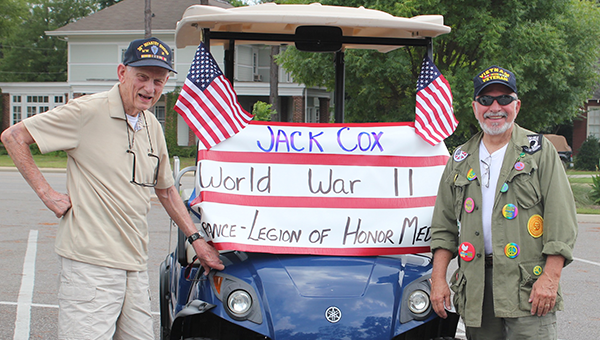Will you read Harper Lee’s ‘Watchman?’
Published 8:41 pm Saturday, July 11, 2015
Ask me for my five all-time favorite books – even ask me for 10 or 20 – and unequivocally, without pause, I would list “To Kill a Mockingbird” first. Then I would agonize over how to limit the rest of my list.
I have read “Mockingbird” no fewer than a dozen times; seen the live performance in Monroeville twice; and watched the movie several times, too.
All are good; but for me, the book is a gift to be opened again and again. I love how the drama of the story is dealt with in the layers of the young children’s daily lives.
Count me among those who wondered why Harper Lee never wrote another book. Unless you’ve been hiding under a rock, you now know that she did, and it’s set to be released this coming week.
I was torn, at first. The timing of the second novel – which actually was her first – is a bit odd, and I wonder if someone with a profit motive convinced her to publish something she’d kept under wraps for almost 60 years.
As much as I wanted more of what is good about “Mockingbird,” I also didn’t want our beloved Ms. Lee to be like the writers who should have stopped with the first novel.
But several months ago, after reading some of the hype, I gave in and pre-ordered the book. Most of those with whom I spoke agreed: They, too, planned to read “Go Set a Watchman,” which takes us back to Maycomb, Ala., in the days of Brown vs. the Board of Education.
When the first chapter became available online yesterday, I thought, “What a nice thing to look forward to this weekend.”
In my social media feed, a Monroeville friend who knows Ms. Lee and who had read the first chapter, wrote, “It sounds just like NHL.”
I smiled and again looked forward to the weekend.
But then.
Then.
Then came the New York Times book review that is delivered to the inbox of readers every Friday afternoon.
“In ‘Mockingbird,’ Atticus was a role model for his children, Scout and Jem — their North Star, their hero, the most potent moral force in their lives,” Times reviewer Michiko Kakutani wrote. “ In ‘Watchman,’ he becomes the source of grievous pain and disillusionment for the 26-year-old Scout (or Jean Louise, as she’s now known).”
There is more. And I think I’ve changed my mind.
I am not so naïve that I don’t realize even the best of those among us has a dark side. But I like the Atticus Finch who was “Mockingbird’s” moral conscience, and inspired many others to pursue justice and fairness; the one who taught us that just because justice doesn’t always prevail, we shouldn’t stop fighting for it.
There’s enough disillusionment in real life; I think I’ll keep my fiction just the way I like it.



